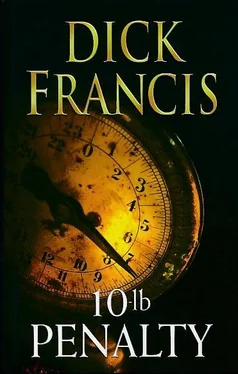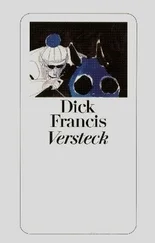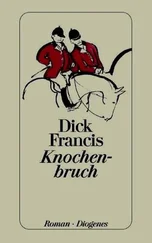Dick Francis - 10 lb Penalty
Здесь есть возможность читать онлайн «Dick Francis - 10 lb Penalty» весь текст электронной книги совершенно бесплатно (целиком полную версию без сокращений). В некоторых случаях можно слушать аудио, скачать через торрент в формате fb2 и присутствует краткое содержание. Город: London, Год выпуска: 1997, ISBN: 1997, Издательство: Michael Joseph, Жанр: Триллер, на английском языке. Описание произведения, (предисловие) а так же отзывы посетителей доступны на портале библиотеки ЛибКат.
- Название:10 lb Penalty
- Автор:
- Издательство:Michael Joseph
- Жанр:
- Год:1997
- Город:London
- ISBN:978-0-7181-4245-2
- Рейтинг книги:3 / 5. Голосов: 1
-
Избранное:Добавить в избранное
- Отзывы:
-
Ваша оценка:
- 60
- 1
- 2
- 3
- 4
- 5
10 lb Penalty: краткое содержание, описание и аннотация
Предлагаем к чтению аннотацию, описание, краткое содержание или предисловие (зависит от того, что написал сам автор книги «10 lb Penalty»). Если вы не нашли необходимую информацию о книге — напишите в комментариях, мы постараемся отыскать её.
10 lb Penalty — читать онлайн бесплатно полную книгу (весь текст) целиком
Ниже представлен текст книги, разбитый по страницам. Система сохранения места последней прочитанной страницы, позволяет с удобством читать онлайн бесплатно книгу «10 lb Penalty», без необходимости каждый раз заново искать на чём Вы остановились. Поставьте закладку, и сможете в любой момент перейти на страницу, на которой закончили чтение.
Интервал:
Закладка:
The presses were humming quietly when I reached them. There were eight in a row with a tower in the center. From each end of four, the presses put first a banner in color — red, green, blue — on the sheets that would be the front and back pages, and then came the closely edited black-and-white pages set onto rollers in an age-old, but still perfectly functional, offset litho process.
I learned afterwards how the machines technically worked. On that fraught Sunday I saw only wide white paper looping from press to press and in and out of inked rollers as it collected the news page by page on its journey to the central tower, from where it went up in single sheets and came down folded into a publish-able newspaper, cut and counted into bundles of fifty.
There were two men tending the presses, adjusting the ink flow and slowly increasing the speed of the paper over the rollers and through the mechanism. Warning bells were ringing. Noise was building.
When I ran into the long thundering area, Usher Rudd was shouting at one of the men to turn everything off. The technician blinked at him and paid no attention.
His colleague activated another alarm bell and switched the presses to a full floor-trembling roar. Monday’s edition of the Hoopwestern Gazette, twenty thousand copies of it, flowed from press to press and up the tower and down at a speed that reduced each separate page to a blur.
Samson Frazer, catching up with me as I watched with awe, shouted in my ear, “Don’t go near the presses while they’re running. If you get your little finger caught in any of the rollers it would pull your whole arm in — it would wrench your arm right out of your body. We can’t stop the presses fast enough to save an arm. Do you understand?”
“Yes,” I yelled.
Usher Rudd was screaming at the technician.
Samson Frazer’s warning was essential.
There was a space of three or four feet between each machine where one was wholly exposed to the revolving accelerating rollers. When the presses were at rest the printers — the technicians — walked with safety into these spaces to fit the master sheets onto the cylinders and to check the state of the inking rollers. When the presses, switched on, ran even at minimum inch-by-inch speed, the danger began. An arm could be torn out, not in one jerking terror but worse, inch by excruciatingly inevitable inch.
I asked later why no guarding gates kept people away. The machines were old, built before safety standards skyrocketed, Samson Frazer said, but they did indeed now have gates. It was illegal in Britain to operate without them. These gates pulled across like trellises and locked into place, but they were fiddly, and an extra job. People who worked around these presses knew and respected the danger, and sometimes didn’t bother with the gates. He didn’t approve, but he’d had no tragedies. There were computerized programs and printers to be had, but the old technology worked perfectly, as it had for a hundred years, and he couldn’t afford to scrap the old and to install the new, which often went wrong anyway, and one couldn’t guard against maniacs like Usher Rudd. No one had to insure against lunatics.
I could have sold him a policy about that, but on that particular Sunday evening what we needed for Usher Rudd was a straitjacket, not a premium.
He was still swearing at the technician, who looked over Rudd’s shoulder and saw Samson Frazer’s arrival as deliverance.
Stopping the presses, I learned later, meant hitting one particular button on one of the control panels to be found on the end of each press that regulated the overall speed of the printing. The buttons weren’t things the size of doorbells, but scarlet three-inch-diameter flat knobs on springs. Neither the technician nor Samson Frazer pushed the overall stop control, and neither Rudd himself nor I knew which of several scarlet buttons ruled the roost. The presses went on roaring and Bobby Usher Rudd completely lost control.
He knew the terrible danger of the presses. He’d worked for the Hoopwestern Gazette. He’d been in and out of newspapers all his adult life.
He grabbed the technician by his overalls and swung him towards unimaginable agony.
The technician, half in and half out of one of the lethal spaces, screamed.
Samson Frazer screamed at Usher Rudd.
The second technician sprinted for refuge in the smaller print room next door.
I, from instinct, leapt at Usher Rudd and yanked him backwards. He too started screaming. Still clutched by the overalls, the technician stumbled out of the fearsome gap, ingrained awareness keeping his hands close to his body: better to fall on the floor than try to keep his balance by touching the death-dealing machinery.
Usher Rudd let go of the overalls and rerouted his uncontrolled frenzy onto me. He was no longer primarily trying to stop the print run, but to avenge himself for the cataclysms he had brought on himself.
The glare in his eyes was madness. I saw the intention there of pushing me instead of the technician onto the rollers, and had we been alone he might have managed it. But Samson Frazer jumped to grab him while the technician, saved from mutilation, gave a horror-struck final shout as he made his terrified stumbling run for the door, and by unplanned chance barged into Usher Rudd on the way, unbalancing him.
Rudd threw Samson off him like an irrelevance, but it gave me time to get space between me and the nearest press, and although Rudd grasped and lurched in an effort to get me back again into the danger zone, I was fighting more or less for my life and it was amazing how much strength ultimate fear generated.
Samson Frazer, to his supreme credit — and maybe calculating that any death on his premises would ruin him — helped me struggle with the demented kicking and punching and clutching red-haired tornado: and it was Samson who delivered a blow to Rudd’s head with a bunched fist that half dazed his target and knocked him to the ground face downwards. I sat on his squirming back while Samson found some of the wide brown sticky tape used for parcels and, with my active help, circled one of Usher Rudd’s wrists, and then the other, and fastened his arms behind his back in makeshift handcuffs. Samson tethered the wildly kicking legs in the same way and we rolled Rudd onto his back and stood over him, panting.
Then, with each of us looping an arm under Rudd’s armpits, we dragged him into the comparative quiet of the secondary print room next door and propped him in a chair.
All of the technicians were in that room, wide-eyed and upset. Samson told them unemotionally to go back to work, there was a paper to be got out, and slowly, hesitantly, they obeyed him.
In his chair, Rudd began shouting, “It’s all his fault. Wyvern did it. Wyvern’s the one you want, not me.”
“I don’t believe it,” I contradicted, though I did.
Usher Rudd tried to convince me. “Wyvern wanted your father out of the way. He wanted Orinda in Parliament. He wanted to get her promoted, like Dennis. He would have done anything to stop your father being elected.”
“Like sabotaging his car?”
“I didn’t want to do it. I would write what he wanted. I trailed Paul Bethune for weeks to find his bimbo, to please Wyvern, so that people would vote for Orinda, but messing up a Range Rover, cutting the brake lines like Wyvern wanted, that was too much. I didn’t do it.”
“Yes, you did,” I told him conclusively.
“No, I didn’t.”
“What did you do, then?”
“I didn’t do anything.”
“Your cousin, Basil, knows what you did.”
Usher Rudd cursed Basil with words I’d hardly ever heard even on a racecourse, and somewhere in the tirade came a description of how he’d wriggled under the Range Rover in the black tracksuit he’d worn to the meeting after the dinner in The Sleeping Dragon. The brilliant performance my father had given that evening had convinced Wyvern that he wouldn’t get rid of my father without at least injuring him badly. Wyvern had been furious with Usher Rudd that his sabotage had been so useless.
Читать дальшеИнтервал:
Закладка:
Похожие книги на «10 lb Penalty»
Представляем Вашему вниманию похожие книги на «10 lb Penalty» списком для выбора. Мы отобрали схожую по названию и смыслу литературу в надежде предоставить читателям больше вариантов отыскать новые, интересные, ещё непрочитанные произведения.
Обсуждение, отзывы о книге «10 lb Penalty» и просто собственные мнения читателей. Оставьте ваши комментарии, напишите, что Вы думаете о произведении, его смысле или главных героях. Укажите что конкретно понравилось, а что нет, и почему Вы так считаете.












